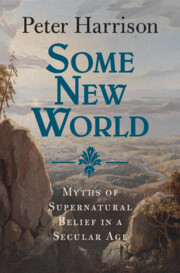I begin by retracing an argument from Aristotle for final causes in science. Then, I advance this ancient thought, and defend an argument for a stronger conclusion: that no scientific explanation can succeed, if Naturalism is true. The argument goes like this: (1) Any scientific explanation can be successful only if it crucially involves a natural regularity. Next, I argue that (2) any explanation can be successful only if it crucially involves no element that calls out for explanation but lacks one. From (1) and (2) it follows that (3) a scientific explanation can be successful only if it crucially involves a natural regularity, and this regularity does not call out for explanation while lacking one. I then argue that (4) if Naturalism is true, then all every natural regularity calls out for explanation but lacks one. From (3) and (4) it follows that (5) if Naturalism is true, then no scientific explanation can be successful. If you believe that scientific explanation can be (indeed, often has been) successful, as I do, then this is a reason to reject Naturalism.


